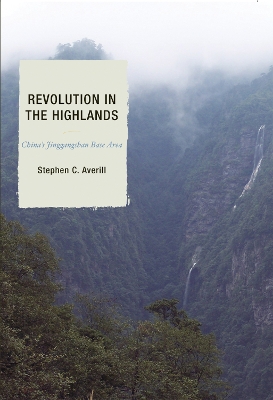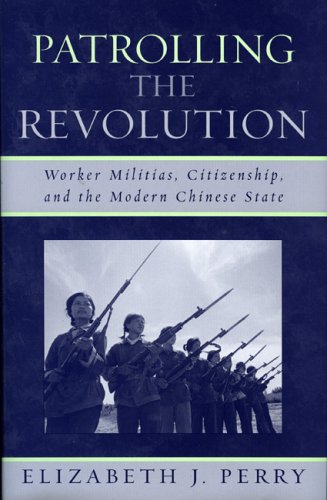State & Society in East Asia
2 total works
Revolution in the Highlands
by Stephen C. Averill, Joseph W Esherick, and Elizabeth J. Perry
Published 6 November 2006
This extensively researched and elegantly written study offers a fine-grained analysis of the origins of the Chinese Communist Revolution in the countryside. Building on decades of research in newly available sources and multiple trips to Jiangxi, Stephen Averill provides a definitive local perspective on the rise of a revolution that reshaped China and the world. A rich work of social history, it goes beyond recently popular organizational approaches to explore the ways in which the party and social networks interpenetrated and interacted in the early stages of revolutionary base-building. The Jinggangshan highlands provided the base for Mao Zedong's first efforts at rural revolution. Chinese histories and most Western accounts have focused on the heroic exploits of Mao and his Communist Party comrades, battling the natural elements, hostile military forces, and skeptical authorities in the urban-based Communist Central Committee. This long-awaited work penetrates the hagiographic haze of Mao-centered analysis to provide a close narrative and rich social history of the Jinggangshan base. The author explores the historical patterns of local strongman rule, clientelist politics, lineage conflict, and ethnic struggle within which the party competed for power. Through this multifaceted lens, the revolutionary experience in Jinggangshan is equally dramatic but considerably more sobering than the conventional story. Among Western studies of the Chinese revolution, this work stands out as the definitive account of the critical moment in the 1920s when the physical and ideological center of the Communist movement shifted from the cities to the countryside. This was a process of elite-mediated political osmosis and adaptive compromises with local traditions. The party was not simply an outside force manipulating social tensions for its own political ends. There was, instead, an intricate interweaving of local networks and social cleavages in the highlands with the political structures and policy divisions of t
This pioneering study explores the role of working-class militias as vanguard and guardian of the Chinese Revolution. The book begins with the origins of urban militias in the late nineteenth century and follows their development to the present day. Elizabeth J. Perry focuses on the institution of worker militias as a vehicle for analyzing the changing (yet enduring) impact of China's revolutionary heritage on subsequent state-society relations. She also incorporates a strong comparative perspective, examining the influence of revolutionary militias on the political trajectories of the United States, France, the Soviet Union, and Iran. Based on exhaustive archival research, the work raises fascinating questions about the construction of revolutionary citizenship; the distinctions among class, community, and creed; the open-ended character of revolutionary movements; and the path dependency of institutional change. All readers interested in deepening their understanding of the Chinese Revolution and in the nature of revolutionary change more generally will find this an invaluable contribution.

